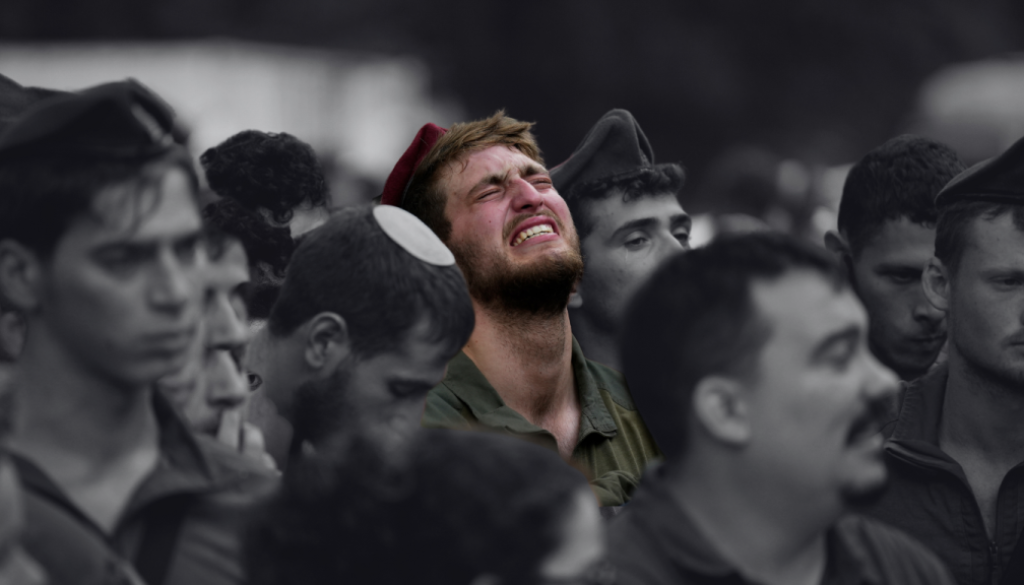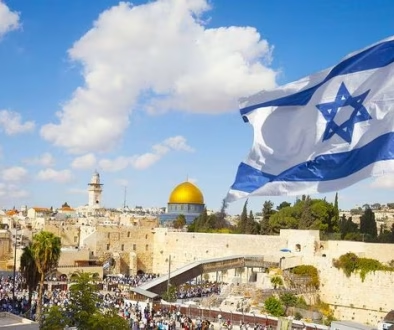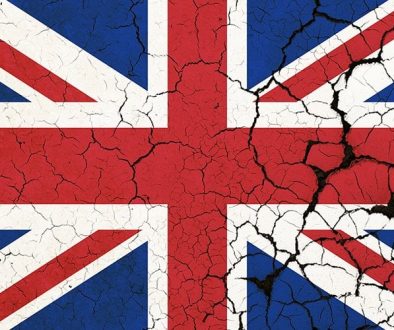Pariah State: Israeli Soldiers Face Arrests and Travel Bans Worldwide
On January 5, 2025, Yuval Vagdani, an Israeli army reservist, fled Brazil while on vacation after a federal judge in the country opened a war crimes investigation into Vagdani over his alleged involvement in demolishing homes in the besieged Gaza Strip. This incident has brought international attention to the actions of Israeli soldiers.
The Brazilian judge used a legal tool called “universal jurisdiction” to pursue Vagdani. Universal jurisdiction allows governments to prosecute individuals for serious crimes, regardless of where they’ve been committed. The case itself was the result of a complaint filed by the Hind Rajab Foundation (HRF), a Belgium-based legal group pursuing action against perpetrators, accomplices, and inciters of war crimes and crimes against humanity in Palestine. Since its establishment, the foundation has submitted more than 30 complaints against members of Israel’s military — from senior-level officials to lower-ranking personnel — around the world, as well as filing a complaint with the International Criminal Court (ICC) against 1,000 Israeli soldiers (including dual nationals from France, the United States, Canada, the United Kingdom, and the Netherlands) for war crimes, crimes against humanity, and genocide in Gaza.
Tracking War Crimes
HRF’s complaints are primarily based on information Israeli soldiers have posted on social media engaging in possible war crimes, such as the destruction and occupation of Palestinian civilian infrastructure and looting of personal belongings.
“Never before have we seen a national military organization like the IOF [Israel Occupation Forces] publishing their crimes,” HRF’s lead lawyer, Haroon Raza, told MintPress News. “They think they’re superior. The only way in which you can publish this stuff is when you think you’re right, because the other side is inferior as a people.”
But it’s not just HRF that’s motivated to hold Israeli soldiers accountable. An X account called “Israel Genocide Tracker” documents Israeli soldiers’ activities in Gaza and Lebanon, as well as where soldiers spend their vacations. Media uploaded to the platform shows Israeli soldiers detonating civilian properties, vandalizing homes, fooling around in abandoned hospitals, and even smiling and smoking next to a blindfolded Palestinian detainee.
In New Zealand, activists with the Palestine Solidarity Network, Aotearoa (PSNA), launched what they called a “genocide hotline” to track Israeli soldiers vacationing in the country.
John Minto, the network’s national chair, told MintPress News the organization has been pushing the New Zealand government to suspend visas for any Israeli soldier who’s served in the military since October 2023 and any Israeli citizen with an address in an illegal Israeli settlement, but said lawmakers haven’t responded to their actions.
“Our government has absolutely done nothing,” Minto said. “They will not condemn any of Israel’s war crimes. So we felt that it was important to take a civil society initiative in the case of these soldiers.”
“Where our government won’t act, civil society will,” Minto added.
Reports emerged that New Zealand had changed its visa requirements, requiring Israeli visitors to disclose their military service during the application process. However, the country’s Immigration Ministry denied these reports, saying its policies hadn’t changed.
Minto said that despite New Zealand’s Human Rights Commissioner, Stephen Rainbow, requesting the hotline be taken down, it’s still active and has received over 200 calls since its launch on January 22, 2025. Minto said the goal is to then hang posters outside where Israeli soldiers are staying, organize protests in front of these accommodations, and hand out leaflets to guests.
“If we know Israeli soldiers are there, [then we] look for any opportunity to tell these Israeli soldiers they’re not welcome here,” Minto said.
In response to Israeli soldiers facing increased targeting abroad for their involvement in Israel’s war on Gaza, Israel’s military tightened restrictions on media coverage of soldiers in January. Under the new rules, press interviewing soldiers with the rank of colonel and below can’t publish their full names and faces and can’t be linked to a specific combat operation. Additionally, military personnel with multiple citizenships must have their faces obscured and names not disclosed in interviews.
While announcing the new protocols, Lt Col Nadav Shoshani, an Israeli military spokesperson, said soldiers weren’t allowed to post footage from war zones on social media under existing military rules “even though that’s never perfect and we have a large army.”
Even before a Brazilian court ordered an investigation into Israeli reservist Vagdani, Israel’s National Cyber Directorate was already warning soldiers serving in Gaza about posting on social media and keeping their profiles public after a discharged soldier shared photos from the frontlines. The images led to activists publishing his identity while he was on holiday in Prague.
“[The directive] didn’t say don’t commit crimes; it says don’t publish them,” HRF’s Raza said, emphasizing it’s too late now.
“Everything has already been saved,” Raza said, referring to HRF and other organizations’ databases, which can save information whether it remains online or not.
How governments are cracking down (or not)
Having long evaded international accountability for its continued violence against Palestinians, Israel is now facing scrutiny worldwide.
On November 21, 2024, the ICC issued arrest warrants against Israeli Prime Minister Benjamin Netanyahu and former Israeli Defense Minister Yoav Gallant over crimes against humanity and war crimes allegedly committed during Israel’s war on Gaza. Countries that are party to the ICC and thereby legally obligated to implement its decisions have been split about whether they’ll comply with the warrants.
According to Just Security, an online publication focused on national security, over 30 out of the 125 countries that are party to the ICC have promised to abide by the court’s decision, including Canada, the UK, Chile, Jordan, and South Africa. Meanwhile, 13 countries, also ICC signatories, have announced they won’t comply, haven’t committed to upholding the warrants, or expressed criticism over the ICC’s decision, including China, Australia, Italy, Sweden, Argentina, Hungary, and Austria.
Some countries have also recently changed their positions, such as Germany, which shifted its stance from suggesting it wouldn’t comply with the warrants to now indicating it would uphold the law. On the other hand, France hinted it may not arrest Netanyahu, arguing he has immunity given Israel is not a party to the ICC.
“Such immunities apply to Prime Minister Netanyahu and other relevant ministers and will need to be taken into consideration should the ICC request their arrest and surrender,” the French Foreign Affairs Ministry announced.
The U.S., which isn’t an ICC party and has largely funded Israel’s war on Gaza, recently sanctioned the court — citing arrest warrants for Netanyahu and Gallant in its reasoning— at the start of President Donald Trump’s second term. The sanctions may hinder ongoing investigations, making it difficult for ICC officials to travel and access funds or scaring individuals from cooperating with ICC probes.
On July 19, 2024, the International Court of Justice (ICJ) ruled Israel’s occupation of the Gaza Strip and the West Bank, including East Jerusalem, is unlawful and must end “as rapidly as possible.” The court also ruled Israel must stop all new settlement activity, pay reparations to Palestinians, and affirmed some of Israel’s policies in the occupied Palestinian territories (oPt) amount to apartheid.
In light of the ICJ’s opinion, the Brussels Parliament passed a resolution on February 3, 2025, placing an arms embargo and trade restrictions on Israel. The resolution now heads to the European Commission, the European Union High Representative for Foreign Affairs and Security Policy, and to the Belgian federal government for final approval.
Also in response to the ICJ’s ruling, Ireland decided to revive its Occupied Territories Bill, which criminalizes trade between the country and Israeli settlements in the oPt. The bill was introduced in 2018 but has stalled over claims it goes against EU trade law, which Ireland, as an EU member state, is beholden to. Both Ireland and Belgium are ICC party states and have stated they will comply with the ICC arrest warrants against Netanyahu and Gallant.
In the Netherlands, a coalition of Palestinian and Dutch civil society groups organizations sued the state in October 2024 for failing to prevent genocide, which the Netherlands, as a signatory to the Genocide Convention, is legally bound to.
“Yet, despite mounting evidence, UN expert warnings, and the most recent ICJ Advisory Opinion, the Dutch government continues to export arms and dual-use goods to Israel, contributing to severe human rights violations in Gaza,” Law for Palestine, one of the parties supporting the case, said in a statement.
More recently, on January 31, 2025, representatives from nine countries convened in The Hague, Netherlands, to establish The Hague Group, an international alliance committed to holding Israel accountable under international law. The founding members—Belize, Bolivia, Colombia, Cuba, Honduras, Malaysia, Namibia, Senegal, and South Africa—announced their shared objectives in an inaugural statement that referenced the International Court of Justice’s opinion and the International Criminal Court’s arrest warrants for Israeli officials.
The group pledged to uphold the ICC’s arrest warrants, ensuring their enforcement against Israeli officials. It also committed to preventing the provision or transfer of arms, munitions, and related equipment to Israel in cases where there is a clear risk of their use in violations of international law. Additionally, The Hague Group vowed to block the docking of vessels at their ports if there is a risk that the ships are transporting military fuel or weaponry to Israel.
“It was born out of necessity given Israel’s ongoing crimes against the Palestinians, breaches of international law, and the wider attacks on international law and accountability, as we saw in the previous U.S. administration and that have been sped up by the new U.S. administration,” James Schneider with Progressive International, which convened the historic meeting, told MintPress News, referring to Trump’s ICC sanctions.
While initially, public resistance to Israel and support for the Palestinian people in the wake of Hamas’ 2023 attack was low, Raza remarked, this attitude has now changed over a year later.
“Finally, Amnesty [International] and all the other organizations woke up to their responsibilities,” Raza said, recalling the human rights group’s December 2024 report concluding Israel is committing genocide. “There is a clear pattern of human rights violations or crimes against humanity, et cetera, which has resulted…in even legally calling it genocide.”
“You see very slowly, especially because of the ICJ rulings, that things are starting to change,” Raza added.
A precedent has been set, and Israeli crimes are no longer being ignored by the international community. For the first time, Israel might not be able to escape accountability.
“People who have committed war crimes from Israel are scared,” Raza said.
We’ve got them literally on the run, which hadn’t happened up until now. Foot soldiers and corporals and captains, et cetera always thought that they could keep on vacationing in Europe and other exotic places, and they can’t do that anymore. And I think they’re waking up to the fact that they will be pursued legally wherever they are.”— Haroon Raza,
Feature photo | Baz Ratner | AP | Editng by MintPress News





